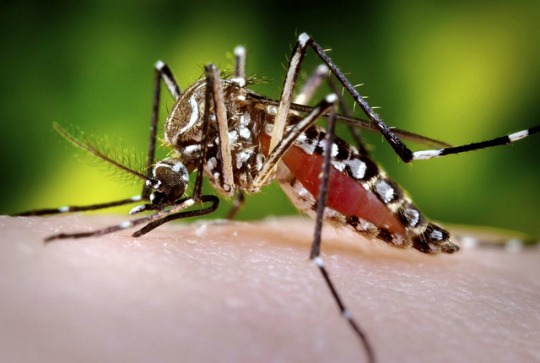Brazil Greenlights Plan to Unleash Genetically Modified Mosquitoes
ORGANIC, GMO, GENETIC ENGINEERING, 12 May 2014
Andrea Germanos – Common Dreams
In Fight against Dengue Fever, Brazil Seeks Biotech Approach
Amid criticism, Brazil this month gave the OK to its first commercial release of genetically modified mosquitoes in an effort to combat dengue fever.
The World Health Organization estimates that dengue, whose main vector is the aedes aegypti mosquito, threatens over 40% of the world’s population, with 2.35 million cases of the infection reported in 2013 in the Americas alone.
GM aedes aegypti mosquitoes were developed by British biotechnology company Oxitec, which has had a years-long project underway in Brazil. The male mosquitoes are engineered so that when they reproduce with the biting females in the wild their offspring die before they reach adulthood, theoretically decreasing the population and thereby curbing the sometimes fatal infection.
Some environmental and civil society groups issued a statement warning that not enough is known about the human health and environmental consequences of the GM mosquitoes to warrant their commercial release.
“There are no data showing that this GM mosquito actually reduces dengue incidence,” stated Gabriel Fernandes, advisor with the Brazilian ecological organization AS-PTA.
“A desperate desire to prop up British biotech and reward venture capital investors should not blind the UK and Brazilian governments to the risks of this technology,” added Dr. Helen Wallace, Director of public interest group GeneWatch UK.
The statement goes on to warn that the experiment could lead to an increase in the number Asian Tiger mosquitoes, which also carry dengue, and adds that there aren’t published tests showing the safety for a human getting bit by a female mosquito that has been accidentally modified or for wildlife swallowing any GM mosquito.
Panama is slated to carry out field trials of the same GM mosquito this year, while potential plans to release them in the Florida Keys have been denounced as “dangerously misguided.”
Climate change will likely cause tropical diseases like dengue to spread, which could provide a profit-making opportunity for companies like Oxitec.
________________________________
This work is licensed under a Creative Commons Attribution-Share Alike 3.0 License.
Go to Original – commondreams.org
DISCLAIMER: The statements, views and opinions expressed in pieces republished here are solely those of the authors and do not necessarily represent those of TMS. In accordance with title 17 U.S.C. section 107, this material is distributed without profit to those who have expressed a prior interest in receiving the included information for research and educational purposes. TMS has no affiliation whatsoever with the originator of this article nor is TMS endorsed or sponsored by the originator. “GO TO ORIGINAL” links are provided as a convenience to our readers and allow for verification of authenticity. However, as originating pages are often updated by their originating host sites, the versions posted may not match the versions our readers view when clicking the “GO TO ORIGINAL” links. This site contains copyrighted material the use of which has not always been specifically authorized by the copyright owner. We are making such material available in our efforts to advance understanding of environmental, political, human rights, economic, democracy, scientific, and social justice issues, etc. We believe this constitutes a ‘fair use’ of any such copyrighted material as provided for in section 107 of the US Copyright Law. In accordance with Title 17 U.S.C. Section 107, the material on this site is distributed without profit to those who have expressed a prior interest in receiving the included information for research and educational purposes. For more information go to: http://www.law.cornell.edu/uscode/17/107.shtml. If you wish to use copyrighted material from this site for purposes of your own that go beyond ‘fair use’, you must obtain permission from the copyright owner.
Read more
Click here to go to the current weekly digest or pick another article:
ORGANIC, GMO, GENETIC ENGINEERING:
